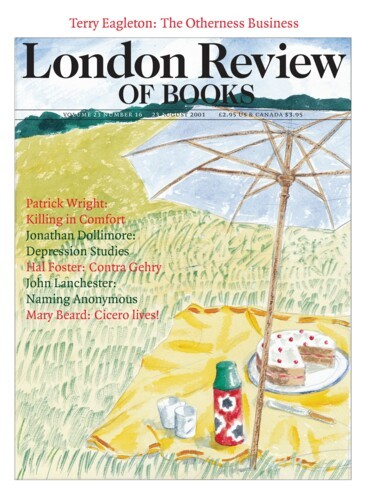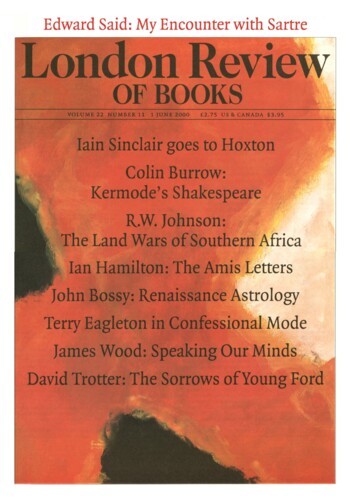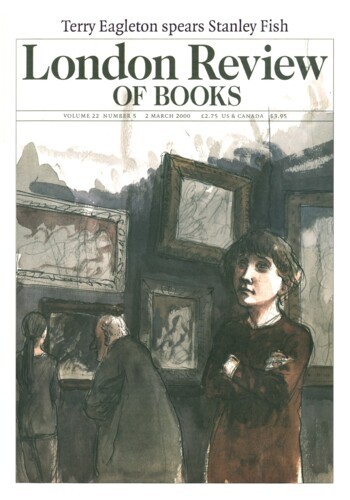A Spot of Firm Government: Claude Rawson
Terry Eagleton, 23 August 2001
It is remarkable how many literary studies of so-called barbarians have appeared over the past couple of decades. Representations of Gypsies, cannibals, Aboriginals, wolfboys, noble savages: these, along with reflections on monsters, Mormons, cross-dressers and hairy Irish ape-men, have all flowed from Post-Modernism’s enduring love-affair with otherness. One wonders what the Tuareg...





